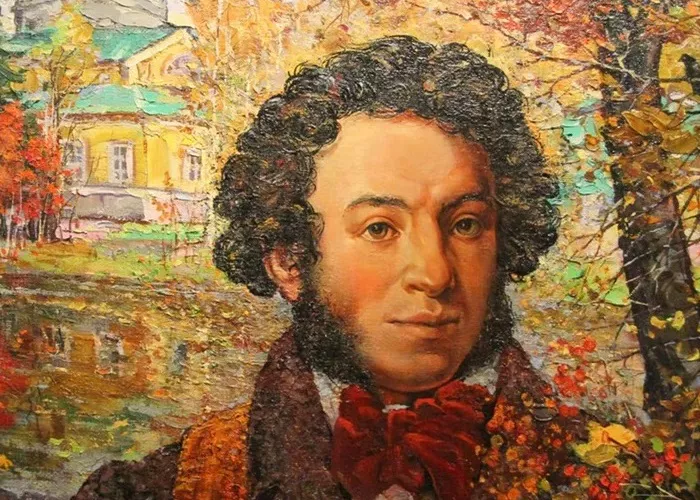Welcome to Poem of the Day – Autumn by Alexander Sergeyevich Pushkin.
Alexander Sergeyevich Pushkin, often hailed as the father of Russian literature, crafted poetry that is both profound and accessible, evoking vivid imagery and resonant emotion. Among his many celebrated works, Autumn stands out as a luminous ode to the season. This poem is not merely a depiction of nature’s transformation but a reflection of Pushkin’s personal connection to the autumnal landscape, infused with philosophical undertones and an intimate sense of renewal.
Autumn Poem Explanation
Pushkin’s Autumn encapsulates the Romantic ideal of finding solace and inspiration in nature. While many poets focus on spring as a season of renewal, Pushkin embraces autumn as a period of creative energy and contemplation. The poet’s relationship with the season is intimate; he perceives its melancholic beauty not as an end but as a fertile ground for imagination.
In Autumn, Pushkin revels in the tactile and visual sensations the season brings. His descriptions are rich with imagery: the golden leaves carpeting the earth, the brisk wind stirring the trees, and the crisp air invigorating the spirit. These images are not passive observations but dynamic forces that awaken Pushkin’s soul. His words seem to breathe life into the natural world, portraying autumn not as a symbol of decay but as a time of profound vitality.
The Dichotomy of Change
Autumn is inherently a season of transition, and Pushkin masterfully captures this duality. The poem juxtaposes the fading of summer’s warmth with the promise of winter’s stillness. Pushkin’s tone oscillates between reverence for the present beauty and a subtle acknowledgment of the impending cold. This oscillation mirrors the poet’s own emotional state, where moments of joy are tinged with an awareness of life’s impermanence.
Pushkin’s philosophical depth emerges as he reflects on time and mortality. The falling leaves, a recurring motif, serve as a poignant reminder of life’s fleeting nature. Yet, Pushkin does not dwell in sorrow. Instead, he finds liberation in the acceptance of this cycle, embracing the inevitability of change as a source of creative and spiritual renewal.
Autumn as a Muse
For Pushkin, autumn is not merely a season but a muse that awakens his literary prowess. The poem reveals his heightened creative fervor during this time, a sentiment that contrasts sharply with the lethargy he experiences in summer. Pushkin’s vivid language and rhythmic cadences reflect the surge of energy and inspiration he derives from the autumnal landscape.
The poem is suffused with a sense of introspection, as Pushkin uses the season to explore his own identity as a poet. The solitude of autumn, with its quieter days and longer nights, offers him a space for reflection and artistic production. This intimate connection between the poet and the season underscores the Romantic ideal of finding unity with nature as a means of self-discovery.
Language and Craft
Pushkin’s mastery of language is on full display in Autumn. His use of rich, descriptive imagery and precise word choice creates a tapestry of sensory experiences for the reader. The rhythm of the poem mirrors the natural cadence of the season, with its ebb and flow capturing the subtle shifts in mood and tone.
The poem’s structure is deliberate, guiding the reader through a journey that begins with the vibrant colors of early autumn and moves toward the subdued stillness of late fall. Pushkin’s language is both lyrical and evocative, drawing the reader into a world where nature and emotion are intricately intertwined.
Conclusion
Pushkin’s Autumn is a celebration of the season’s beauty, complexity, and transformative power. It is a work that transcends its immediate subject, offering profound insights into the human experience. Through his masterful use of language and his deep connection to nature, Pushkin transforms autumn into a metaphor for creativity, renewal, and the acceptance of life’s impermanence.
This poem stands as a testament to Pushkin’s enduring genius and his ability to find meaning and inspiration in the world around him. It invites readers to view autumn not as a prelude to winter but as a season of vibrant life and boundless potential, echoing Pushkin’s own spirit of resilience and creativity.

